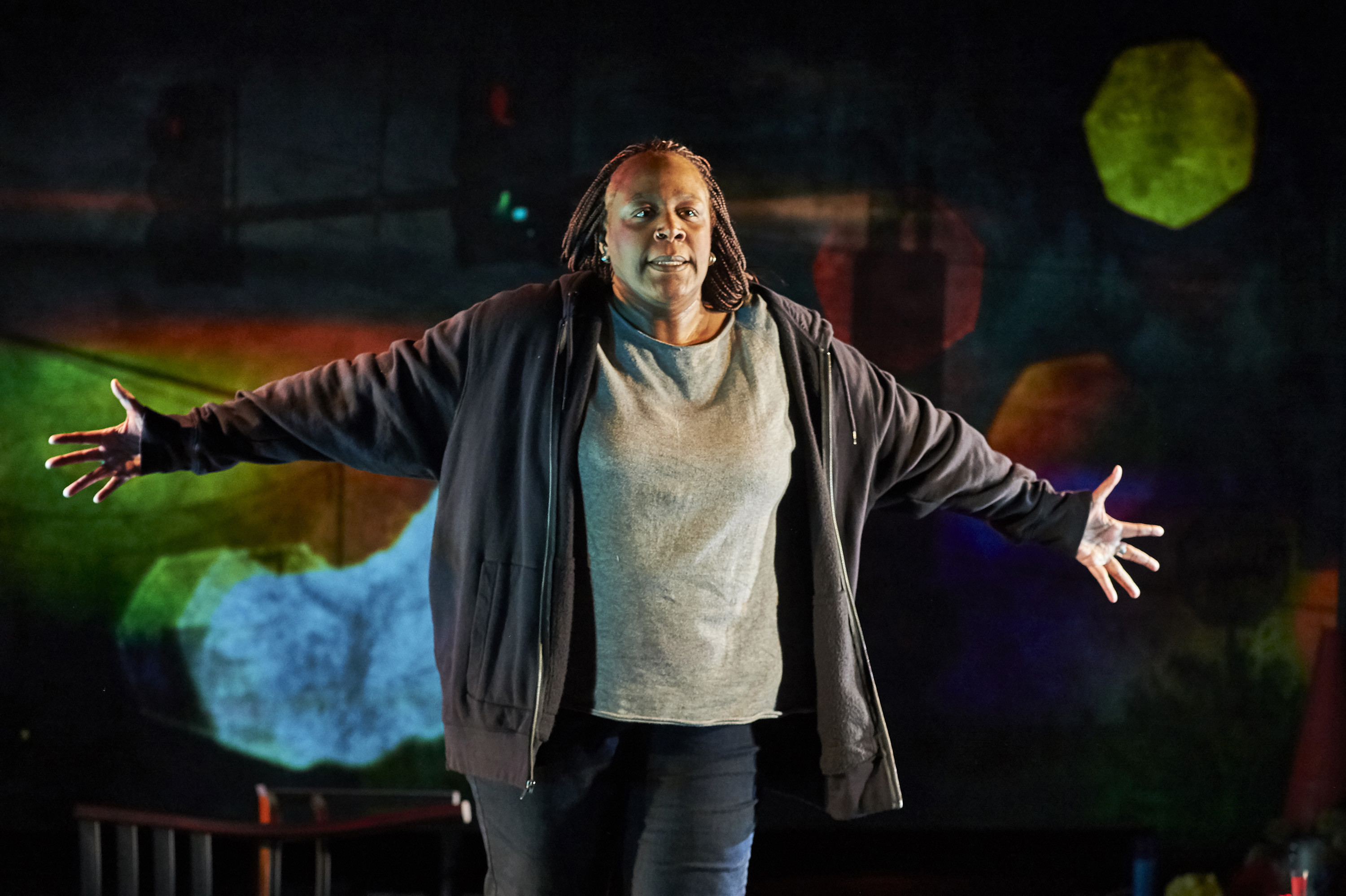How Dael Orlandersmith Speaks to People
And Why She’s Bringing 'Until the Flood' Home to the Kirk Douglas Theatre

Dael Orlandersmith starts the conversations her audiences need. In her newest groundbreaking work, Until the Flood—onstage at the Douglas from January 21 – February 23, 2020—that means thinking and talking about Ferguson, Missouri, where in 2014 a white police officer shot and killed an unarmed black teenager named Michael Brown. After successfully touring nationally and internationally, she’s bringing this solo show to the Kirk Douglas Theatre, which has in many ways become an artistic home away from home.
“Center Theatre Group has been so supportive. When we did Bones, other people wouldn’t touch it, and I will always be grateful to Michael Ritchie for that,” she said. Orlandersmith’s three previous plays at the Douglas include two World premieres. In 2010’s Bones she chronicled a difficult reunion among family members with a traumatic past, and in 2014’s Forever she told the story of her fraught relationship with her abusive mother.
“The content is very difficult,” acknowledged Orlandersmith of Until the Flood. “The challenge every night is to tackle that stuff,” she added. “But I have to do that.” She portrays eight different composite characters whose stories are based on extensive interviews she conducted in Ferguson in 2015. They include Hassan, a black teenage “street kid,” Dougray, a racist landlord, and Connie, a white teacher who tries to empathize with both Brown and the officer who shot him.
“I do what I have to do as an actor. Sometimes when we see certain people, they remind us of an aspect of ourselves that we don’t like,” said Orlandersmith of portraying these characters. “I wonder, am I seeing something about myself I don’t like? And then I tackle it. It’s my responsibility to be a storyteller and to be an actor.”
Until the Flood began during rehearsals for Forever, which was also directed by Center Theatre Group Associate Artistic Director/Literary Director Neel Keller. “The Repertory Theatre of St. Louis reached out to ask if Dael would create something that addressed what was happening in their city,” said Keller. “She asked me to collaborate with her on the new play. So, we have been working together on Until the Flood since the very beginning.”
Keller and Orlandersmith first met in 1994, when he directed a production of Romeo and Juliet at the Williamstown Theatre Festival. “I love working with Dael. She always challenges me and, probably more importantly, always surprises me,” said Keller.
Orlandersmith, for her part, relies on Keller to help her take a step away from the material. “There’s certain things Neel has told me to do and suggested that I do that are now becoming clearer,” said Orlandersmith. “When you’re wearing both the actor and the writer hat, you need that second perspective.”
Both Orlandersmith and Keller weren’t sure what audiences would make of Until the Flood at first—particularly because it was premiering just miles away from where the story is set, in St. Louis. “I wondered what would happen with that community, and they took to that piece, my God they were wonderful, they were so glad they were there,” said Orlandersmith. “I don’t speak for people, I speak to people, and I made that very clear. I’m not a politician.”
Nine productions later—across America and in Galway, London, and Edinburgh, where Until the Flood won two of the Edinburgh Festival Fringe’s most prestigious awards— that still holds true. “It was very moving to see how strongly European audiences connected to this very American piece. Dael acknowledges the multiplicity of truth swirling around the events at the heart of the play. By allowing her composite characters to speak their often contradictory truths, she is able to capture something elemental about this very human, very complicated situation,” said Keller.
Added Orlandersmith, “I hope that people are listening, and I hope it invokes a certain kind of thought and communication.”

